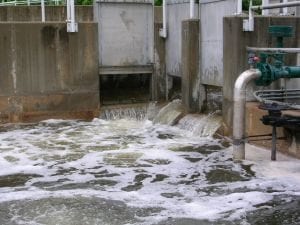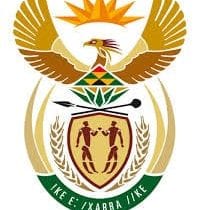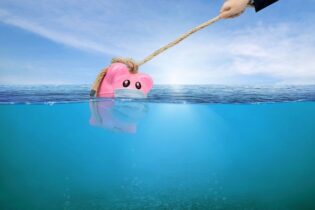 The Department of Water and Sanitation (DWS) has expressed concern over the levels of sewer pollution in the country, mainly due to the poor state of South Africa’s waste water treatment works.
The Department of Water and Sanitation (DWS) has expressed concern over the levels of sewer pollution in the country, mainly due to the poor state of South Africa’s waste water treatment works.
The DWS reports that it has encountered high levels of sewer pollution which has negatively impacted water quality. Upon further investigations, it was discovered that the pollution was mainly caused by dysfunctional municipal waste water treatment plants. Waste water treatment works in most municipalities are in a state of decay due to poor maintenance. The situation is also compounded by the fact that communities are growing while infrastructure is not. This leads to overloading which in turn leads to spillages. Unfortunately, most plants are operating above their design capacity.
Poor Green Drop results
The department is also gravely concerned with the poor performance of most municipalities in terms of the Green Drop report. The DWS cites this as one of the main reasons for interventions into the municipalities that negatively affect the water quality in the sources such as rivers, streams and dams. Civil rights organisation AfriForum last month released its blue and green drop test results. The campaign tested water and sewage quality in 132 South African towns. For its Green Drop report AfriForum tested sewage systems in 72 towns across South Africa. Twenty-seven of these systems did not meet the quality standards. South Africa’s national water quality standards allow for 1 000 units E. coli per 100 ml water in treated sewage. “The 27 sewage treatment plants that did not meet the standards may be seen as a threat to human health, food security and the environment. The standard of sewage systems should be treated as priority in 2016 in light of the dry conditions in South Africa,” says Marcus Pawson, AfriForum’s Head of Local Government. Mpumalanga was a particularly bad offender. AfriForum tested the sewage quality in 13 towns in the province and found that the sewage of only four towns fell within the set microbiological standards. Eight towns did not adhere to the regulations.
Gauteng also performed badly with the sewage of only three of the nine areas tested meeting the set microbiological standards and six areas not adhering to the regulations.
The Western Cape performed the best. The sewage quality was tested in 12 towns, all of which fell within the set microbiological standards.
Urgent intervention
In preventing the further pollution of water resources, the DWS is intervening in the municipalities mostly affected by sewer spillages through the funding of the refurbishments of the waste water treatment works. Waste water treatment works need to be operating optimally to ensure that treated effluent of acceptable standards is discharged into the water resources. Some of the municipalities benefitting through the Accelerated Community Infrastructure Programme in the Mpumalanga Province include Emakhazeni and Dr Pixley ka Isaka Seme local municipalities. Refurbishment projects are currently underway in Waterval Boven, Machadodorp and Belfast in Emakhazeni Local Municipality and in
Amersfort in the Dr Pixley ka Isaka Seme Local Municipality to ensure that the plants are compliant. “We all need to work together as responsible citizens and government to ensure that our waste water treatment works are in good condition and prevent unnecessary sewerage spillages that pollute our water resources,” the department said in a statement. “Residents are urged to prevent contributing to the spillages by not throwing foreign objects into the systems, the sewers especially. These can block the sewer systems. The community members must also immediately report blockages and spillages in their areas.”
 The Department of Water and Sanitation (DWS) has expressed concern over the levels of sewer pollution in the country, mainly due to the poor state of South Africa’s waste water treatment works.
The Department of Water and Sanitation (DWS) has expressed concern over the levels of sewer pollution in the country, mainly due to the poor state of South Africa’s waste water treatment works.






